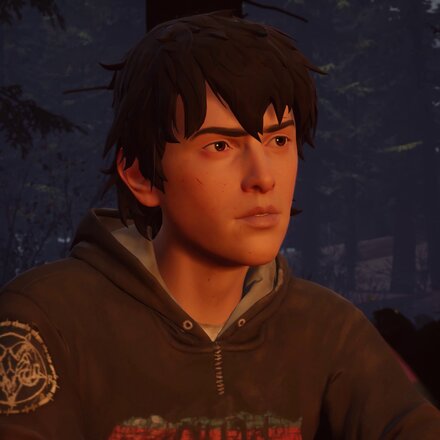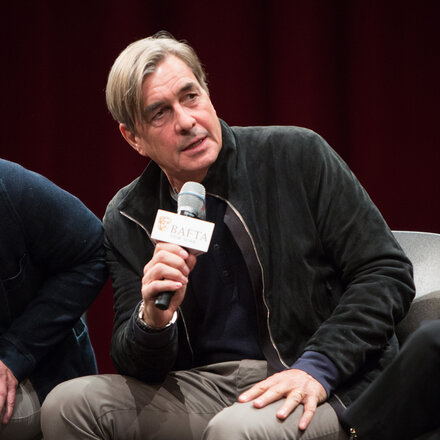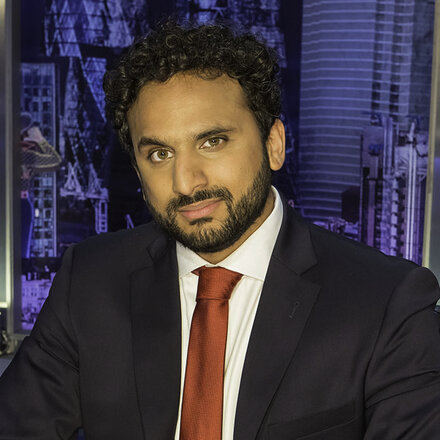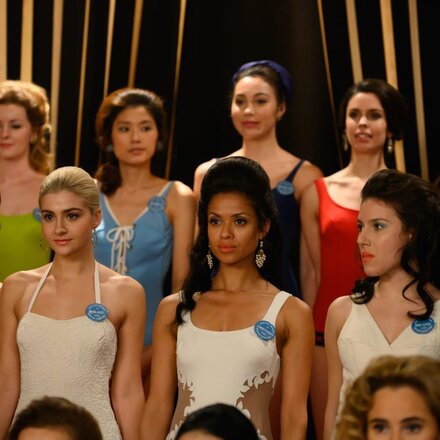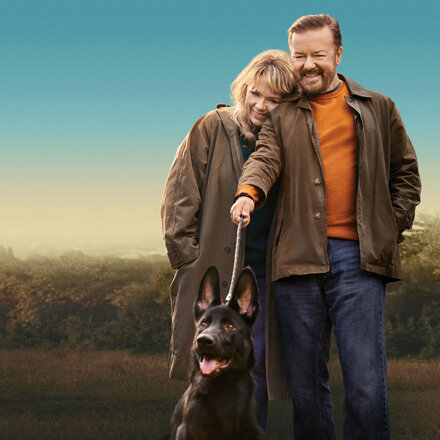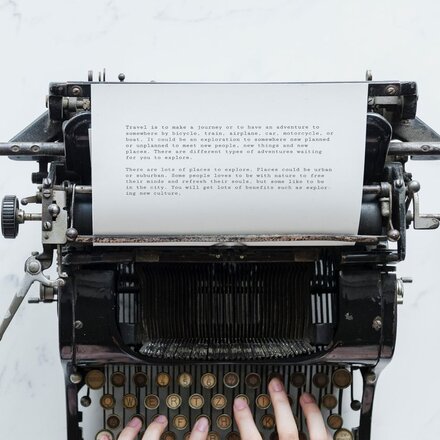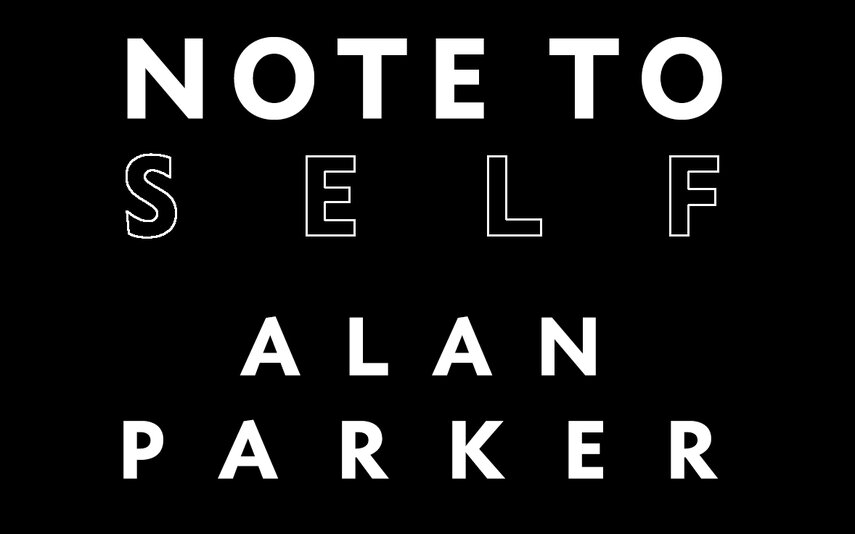
Note to Self... Alan Parker
The director, producer and screenwriter (Bugsy Malone, Fame, Midnight Express, Evita) on mistakes, mentors and his dream cast and crew.
One day, I’ll be an eccentric artist. When I was very young (about nine or ten) in Islington, North London, my passion was ‘Saturday Morning Pictures’ at my local Odeon cinema. I never took much notice of the directors, but loved the rather scratchy cowboy serials with their ‘cliff-hanger’ endings. When I got a little older (about 13) I saw a film called The Horse’s Mouth directed by Ronald Neame, starring Alec Guinness as an eccentric artist. I came straight home and started painting the bottoms of feet with house paint found in my Dad’s cupboard.
Get a clean Saturday job that doesn’t require scrubbing afterwards. Whilst I was still at school, I used to work on Saturdays in Camden Town at a place called Jolly’s Cooked Meats. I loved showing off in the window with a long wooden handled fork theatrically skewering the chicken legs and amusing the customers. The downside was that I had to take the chickens off the spit and would be covered in chicken fat. In the evenings, before my Saturday nights out at the local dance hall, I would scrub like mad to get rid of the grease. Once, whilst dancing with a pretty girl, she said “Gawd, you don’t half smell of chickens.”
It doesn’t matter where you come from, or what your accent is, it’s all about how bright you are and how hard you’re prepared to work. I came from a working class background and when I started work (about 1962) Britain was still a very rigid, class divided society, which bothered and probably angered me no end. But it was also the beginnings of ‘the Sixties’ revolution when kids from all walks of life were able to get a chance, particularly in the arts. I wanted to be a writer and, not going to university, found it hard to get started. So I went into advertising and became a copywriter and then a screenwriter and director.
“We don’t need no education.” Yes you do, but not necessarily at a university. In the early days, I probably lacked a little confidence, probably because of coming from the background that I did. (But I had got to the best school in Islington where I grew up – in fact it was one of the best schools in the country) and that was a great privilege that I should have taken more advantage of -- and probably gone to university (or art school which I favoured). Truth is, that I fell on my feet going into advertising as it possibly benefitted me more than going to university with furthering my career.
Listen to people who know more than you do. Then do it your own way. When I started out in advertising I had a mentor in the advertising agency I worked in called Colin Milward, the creative director and mentor also to David Puttnam and Charles Saatchi, who worked with me. He was tough Yorkshireman and his dour, no nonsense wisdom still stays with me. When I went on to make films my mentor was the great director, Fred Zinnemann. He would critique my films and give me his (not always kind) opinion. He told me, “Being a film director is a great privilege, so don’t waste it.”
However impossible it seems sometimes during filming – just squeeze your eyes together and you’ll be at ‘end of picture’ party. All films are hard to make. It’s a great challenge, and like that guy Sisyphus, you push the boulder up the mountain, not with constant success. There is always a point in every film when ‘film overload’ kicks in and you think you’ll never complete the film. Truth, is, however difficult it is, you always do.
No one is brilliant all the time. Now and again, you’ll mess up. You can’t always be right as a director. It’s fine to mess up, as long as you learn from your mistakes -- and if you don’t learn from your mistakes, never blame someone else. You answer a hundred questions a day and the more answers you get right, the better the movie will be. Also the hours are long. It’s a 14-hour-day, seven days a week job. Long after the actors and technicians have gone home, you will still be working.
You give a little love, and it all comes back to you. La la la la la la la. Bugsy Malone was my first feature film, forty years ago now. I had been very successful in TV commercials previously, but Bugsy convinced financiers and studios, that I could hold an hour and a half of story-telling in my head—not just the thirty seconds of a commercial. I also wrote it which gave me confidence for my future screenplays. It’s always amazing to me that this little film, that started as a story I told my own children on long car journeys would last the test of time and that it’s still shown and discussed forty years later.
My dream team? I’d have Alfred Hitchcock as my assistant director, for handy advice but mostly his wit during lunch. It would be great to say after each take, “What do you think Hitch?” My dream story would be set in a Bordeaux vineyard. It would have more than adequate finance, so that we could shoot sensible hours – preferably starting early morning when the light is best and then long mornings followed by a longer lunch. The cinematographer would be my usual collaborator Michael Seresin, because he’s rather good and he’s my pal who makes me laugh - good humour and friends are what you need most on a shoot. You can make a good film without the former, but never the latter. I’d love to have Marcello Mastroianni, Orson Welles and Kathrine Hepburn in the cast, with a young Jack Nicholson, James Dean and, perhaps, Barbara Stanwyck. Federico Fellini would be great doing the sets, not that he’s a production designer, but he has the best visual sensibility, which could be very handy. I would ask Francis Coppola to do the catering, as it would ensure the best wine, as he’s an expert. Also as he directed at least two of my favourite films, in between making the meatballs, he might have a film tip or two he could pass on to me.

